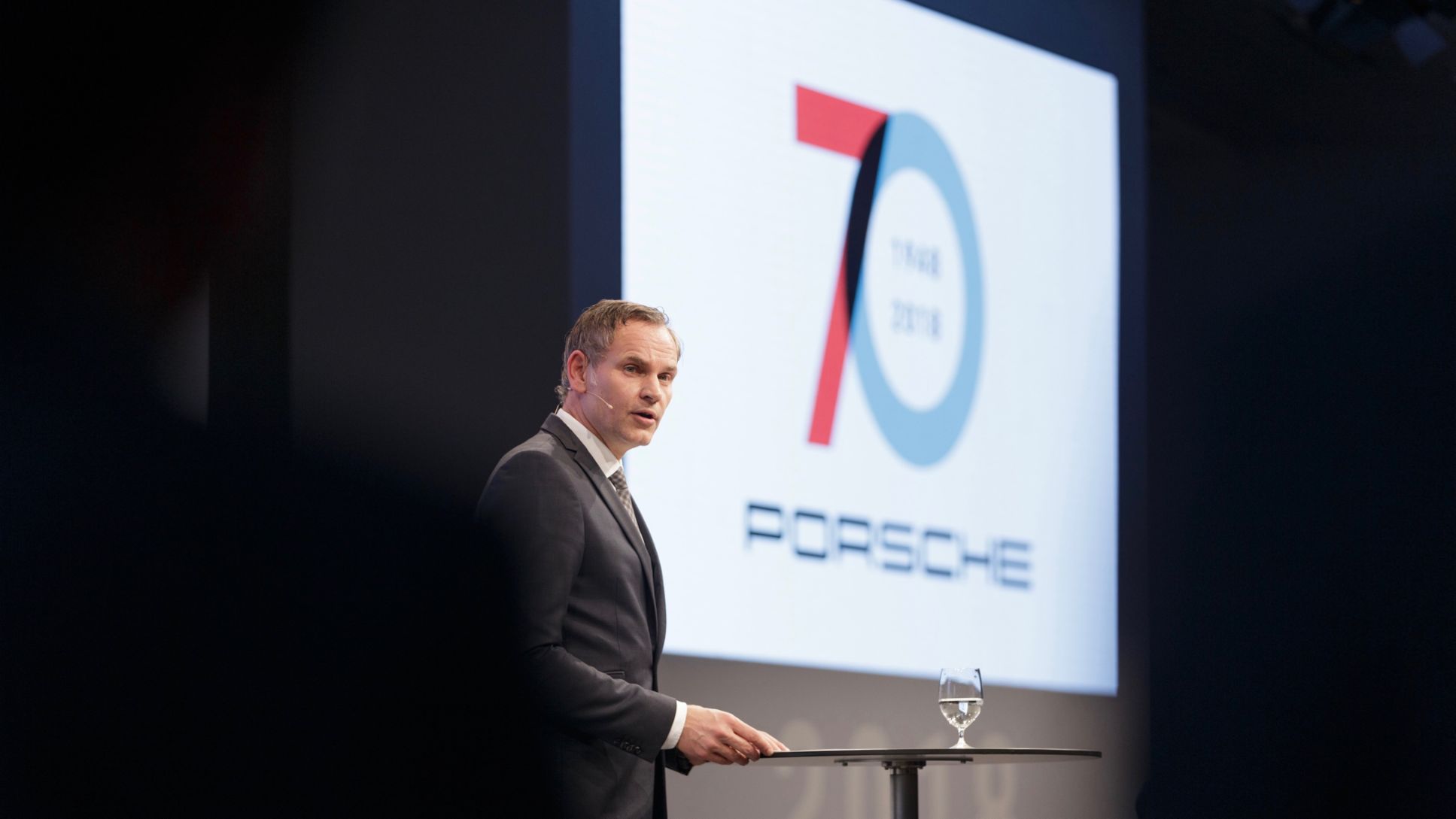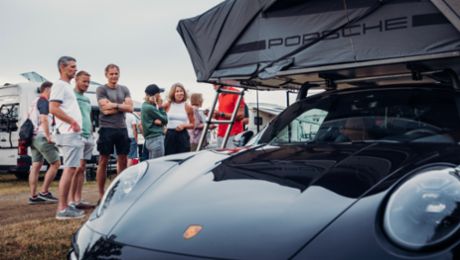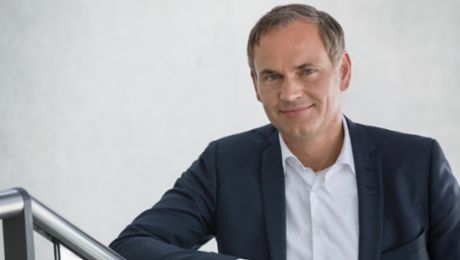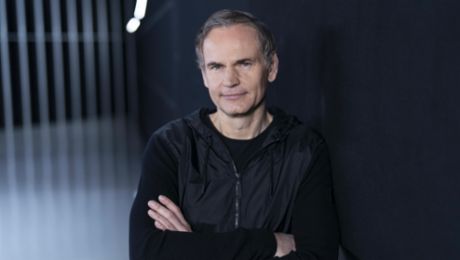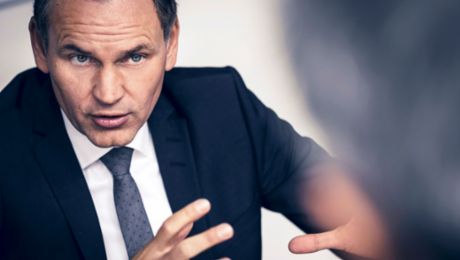Mr Blume: With the founding of Porsche Digital, the Digital Lab or the involvement in Startup Autobahn, the company is currently well and truly open to ideas from the outside. Does this mean that Porsche will become a different company?
We are not about to change our character or totally change Porsche from top to bottom. What we’re aiming for is to systematically generate ideas across all areas, and for these to be put into practice quickly and flexibly. We want responses to urgent questions, without being blinkered in our approach. What we don’t want is a culture of avoidance, but an enterprise culture in the truest sense of the word. We don’t want to be any different, we want to be better. Our collaborations, such as those arising from the Startup Autobahn project, can only help us to achieve this.
Does this only apply to products?
This is one of three major fallacies.
And what might these be?
Fallacy number one: People always believe that for us, innovation means a new car. That can be the case, but does not have to be. Leading innovators take an extremely diverse approach to the theme. Alongside technologies and products, they deal intensively with processes, services, customer interfaces and partnerships, as well as with business models. Fallacy number two is similar: Must everything I do always be new, unique or revolutionary? By no means. It is not just the first movers but also fast followers who can be very successful. Porsche did not invent the SUV, but we have made it a Porsche.
And fallacy number three?
A continuous improvement process is already innovative enough. We make everything a little bit faster, lighter, cheaper. I believe that we must also have the courage to question the fundamental things. Without this there would be no Porsche Mission E.
How must a CEO act in order to advance things that will change a company from the ground up?
Personally, I strongly believe that changes such as those that we are currently implementing can neither be achieved alone nor with individual initiatives. It requires a bit more – a convincing team, ideas, courage, passion and a strategy that is well thought out and constantly adapted. The important thing is to know what needs to be done. And then tackle it, set an example and take responsibility. It starts with me personally. Only someone who has a sense of responsibility will also be in a position to change and advance things. This is precisely our goal: We want to change Porsche without neglecting the things that made us strong.
Such as?
For example: Motor racing is one of Porsche’s roots. We are now transferring our experience and knowledge gained from decades of racing with thousands of victories to Formula E. So again we are taking on a new challenge, while keeping the same mindset: racing is there to help us develop better road cars. It is exactly the same with Formula E – the ultimate test laboratory for our electrification strategy. The future of the sports car combines our tradition and our values with new, sustainable technologies and a highly emotive driving experience. Mission E, Porsche's first purely electric vehicle, is such an example. It will simultaneously be the sportiest and the most technologically sophisticated car in its class. E-mobility, Porsche performance and driving pleasure are not mutually exclusive. For us, they all belong together.
